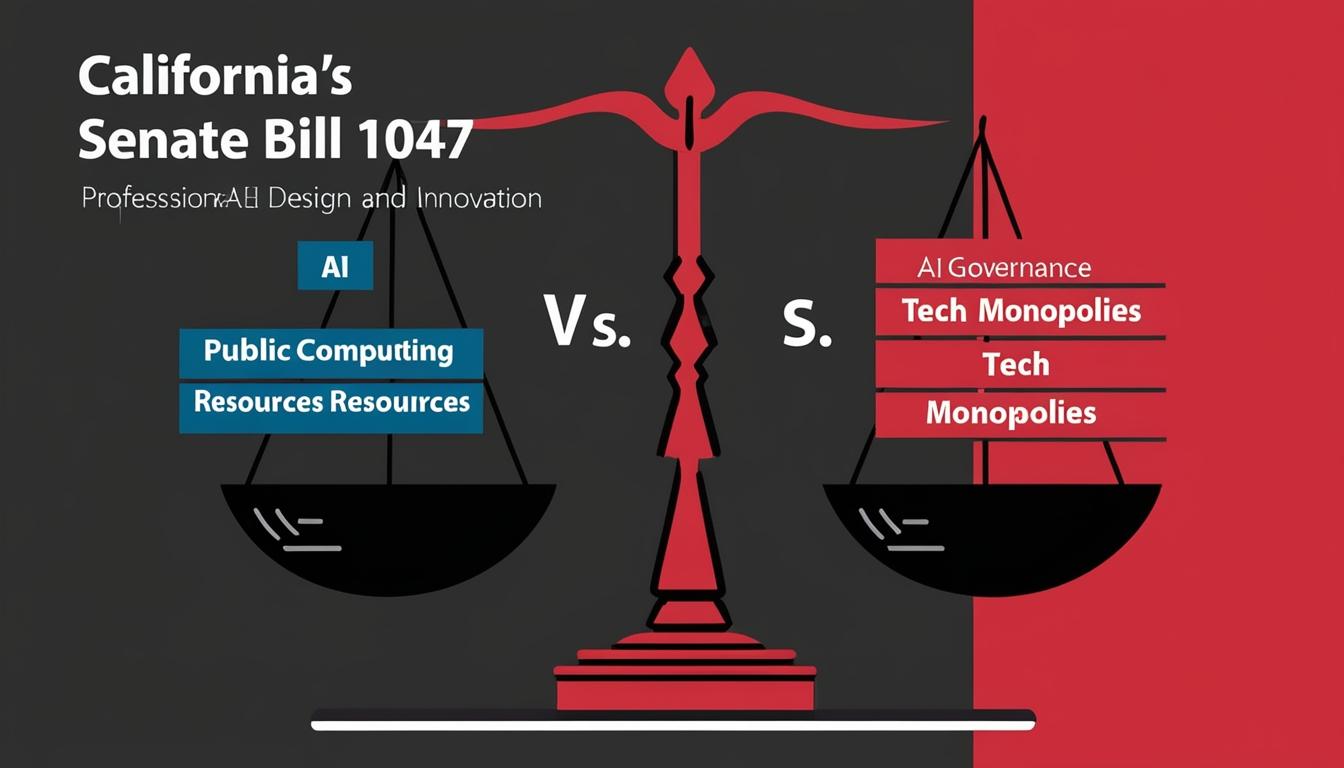When California state Senator Scott Wiener introduced Senate Bill 1047, it sparked significant debate regarding the governance of artificial intelligence (AI) in the United States. This legislation aimed to establish crucial frameworks for AI safety, but one of its more groundbreaking components, called "CalCompute," received considerable attention. The proposal intended to designate parts of the computing power necessary for AI development as a public resource, potentially disrupting the monopolistic hold that major tech companies have over this critical infrastructure.
The term "compute" refers to the vast computing power essential for developing and operating advanced AI systems, primarily supported by extensive data centres packed with specialized chips. Currently, this sector is dominated by three of the largest technology enterprises: Amazon, Google, and Microsoft. These companies possess substantial resources to build sophisticated AI models, posing a barrier to entry for smaller enterprises and innovators in the market.
Despite the bill's ultimately unsuccessful bid for approval, followed by a veto from Governor Gavin Newsom, advocates stress that the principles behind CalCompute should not be discarded. The idea of treating computing power as a public good is not entirely new. Public options throughout history, such as the U.S. Postal Service and broadband connectivity, have successfully provided equitable access to markets and fostered innovation.
Proponents envision a publicly funded and operated supercomputing network that would serve not only government entities and researchers but also entrepreneurs who currently face prohibitive costs. The intention is not to eliminate private providers but rather to complement existing services, expanding access and ensuring that AI development aligns with public interests rather than solely commercial objectives.
The implications of AI are expected to extend across various sectors, transforming industries such as healthcare, scientific research, financial services, and manufacturing. Influential regions, including Washington, D.C., Brussels, and Sacramento, will play critical roles in shaping how this transformation benefits the public.
California stands out as a significant player in this field, housing Silicon Valley and being the fifth-largest economy globally. The CalCompute initiative offers a potential blueprint for creating public computing infrastructure that could later inspire federal strategies.
Support for such ideas has been gaining ground both nationally and internationally. New York has initiated Empire AI, a $400 million project collaborating with universities to develop public computing resources. Similarly, the UK government is making strides with a new AI Research Resource designed to provide premium compute access for British researchers, while the United Arab Emirates has heavily invested in cloud infrastructure.
Organisations like the Omidyar Network are committing substantial funds towards research and the development of open digital systems, and scholars such as Ganesh Sitaraman of Vanderbilt University provide expertise ensuring that the future landscape of AI is not dominated solely by established corporate entities.
As competition intensifies among tech giants investing heavily in this space, there is a pressing need for alternatives. Initiatives like CalCompute, whether implemented at the federal level or on a state scale, could help distribute the advantages of AI and facilitate a more inclusive future for innovation across all demographics.
Source: Noah Wire Services
